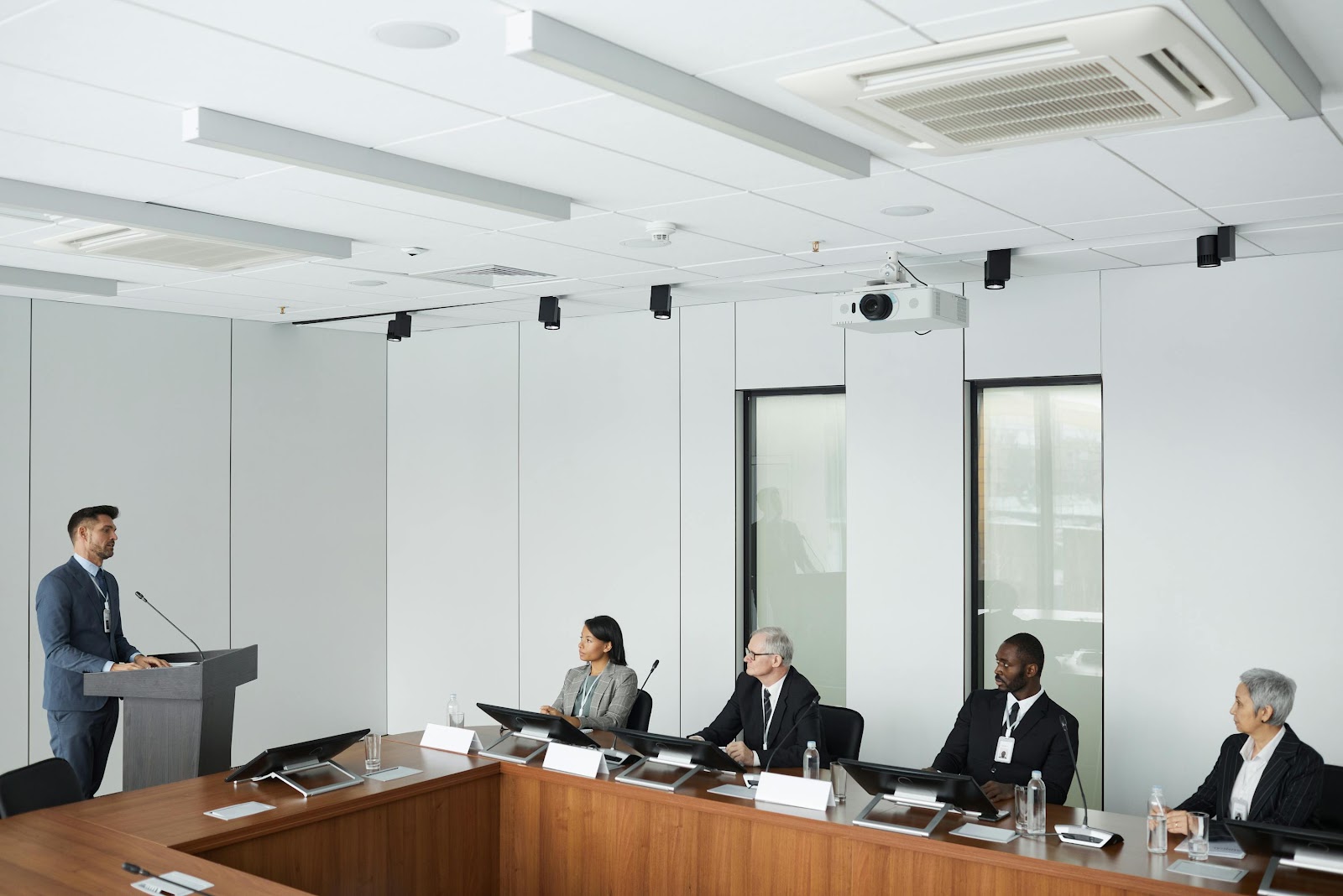One crucial component of disability rights is advancing the Deaf community’s inclusion and accessibility.
In establishing policies, guaranteeing the defense of rights, and cultivating an inclusive society, governments everywhere occupy a special place.
It is still difficult for many Deaf or hard-of-hearing people to access public areas, education, work opportunities, and basic services.
Environments that meet the needs of the Deaf community and allow for full participation in all facets of life must be actively created by governments.

The Legal Framework for Disability Rights
Promoting accessibility and inclusion for people with disabilities, including the Deaf community, is based on a solid legal framework.
Disability rights laws have been introduced by numerous governments to guarantee equal access to resources and shield people from discrimination.
A pledge to protect these rights is embodied in laws like the United Nations Convention on the Rights of Persons with Disabilities (UNCRPD) worldwide and the Americans with Disabilities Act (ADA) in the United States.
These laws require equal access to public services, healthcare, work, and education by removing barriers in both the physical and digital spheres.
However, effective implementation and enforcement present a challenge; legislation alone is insufficient.
In addition to being enshrined in legislation, governments must make sure that these rules are actively adhered to by organizations, corporations, and public areas.
Education and the Deaf Community
Education is one of the most important areas where governments can have a big influence.
Although it is a fundamental right, many Deaf people face obstacles in fulfilling this right because schools do not implement inclusive practices.
Governments should take the lead in making sure that Deaf students are included in educational systems by offering sufficient funding, support networks, and qualified teachers.
One crucial step is the use of sign language interpreters in classrooms.
To guarantee that Deaf students have equal access to information as their hearing counterparts, governments can enact laws requiring interpreters in elementary and postsecondary educational institutions.
Furthermore, although they may still be required in certain situations, special schools for Deaf students should not be the only choice.
Accessible teaching strategies and technology should be incorporated into mainstream schools’ environments to make them more inclusive of all students.
Governments can encourage the Deaf community to pursue lifelong learning beyond K–12 education by assisting institutions of higher learning in offering services that are accessible.
For instance, providing closed captioning or sign language interpretation for online learning platforms would allow Deaf people to pursue their academic objectives without needless obstacles.
Employment Opportunities and Economic Inclusion
Another crucial area where government action is necessary is economic inclusion.
Due to discrimination in the workplace and communication barriers, Deaf people frequently have difficulty obtaining equal employment opportunities.
To address this, governments must implement laws that prohibit discrimination in employment practices and develop policies that encourage workplace inclusion.
Governments can encourage the hiring of Deaf people and offer incentives to businesses that implement inclusive employment practices by collaborating closely with the public and private sectors.
Additionally, attention needs to be paid to making workplaces accessible, which includes offering inclusive training programs, accessible communication tools, and sign language interpreters.
Hiring procedures are only one aspect of creating accessible job markets for the Deaf community.
Governments can encourage Deaf people to pursue entrepreneurship by offering resources, funding, and training that are specifically designed to meet their needs.
Healthcare Access and the Deaf Community

Another area in which the government plays a crucial role in making sure the Deaf community is not left behind is healthcare.
Communication barriers between patients and healthcare providers can make it especially difficult for Deaf people to access healthcare services.
To guarantee that Deaf people receive the same level of care as their hearing counterparts, governments must pass laws requiring healthcare facilities to have certified sign language interpreters and accessible communication devices.
It is also critical that healthcare professionals receive training on how to interact with Deaf patients.
Governments can create and support healthcare training initiatives that emphasize providing culturally competent care, utilizing accessible technology, and comprehending the needs of Deaf patients.
By doing this, governments can guarantee that Deaf people feel empowered to manage their health in addition to having access to healthcare services.
The Role of Technology in Promoting Accessibility
In the modern digital world, technology is becoming more and more crucial in advancing the Deaf community’s inclusion and accessibility.
Governments can use technology to encourage social participation and break down barriers to communication.
It is crucial to guarantee that the Deaf community can access public digital services, including government websites, public announcements, and emergency notifications.
Governments ought to give top priority to ensuring that their digital platforms adhere to accessibility guidelines like the Web Content Accessibility Guidelines (WCAG).
This entails making sure digital interfaces are made to accommodate Deaf users, offering videos in sign language, and offering closed captions.
Encouraging private businesses to implement these accessibility practices can expand the digital landscape beyond government services and make it more inclusive for all.
Governments can also spend money creating and promoting assistive technology that gives the Deaf community more power.
For instance, Deaf people can communicate successfully in a variety of contexts, including the workplace and classroom, thanks to real-time captioning software and video relay services.
Public Awareness and Cultural Sensitivity
Public awareness and cultural sensitivity are just as vital in creating an inclusive society as legal frameworks, education, and technology in advancing accessibility.
Campaigns to raise awareness of the special needs and contributions of the Deaf community are one way that governments can set an example.
While emphasizing the value of creating accessible environments, these campaigns can dispel damaging stereotypes and misconceptions about Deaf people.
Additionally, governments can work with Deaf organizations to develop culturally relevant programs that highlight Deaf language and culture—especially sign language—as crucial components of inclusion.
Bridging communication gaps and fostering greater understanding can be achieved by promoting sign language instruction and learning in the general public.
Conclusion
It is impossible to overestimate the role that the government plays in advancing inclusion and accessibility for the Deaf community.
Governments can establish a society in which Deaf people can thrive and fully participate by implementing and upholding strict disability rights laws, guaranteeing access to education, encouraging workplace inclusion, enhancing healthcare services, and utilizing technology.
Promoting cultural sensitivity and public awareness is equally crucial to creating a more accepting and understanding atmosphere.
To guarantee that Deaf people have the opportunities, resources, and assistance they require to live with equality, independence, and dignity, governments must take the initiative.
For those who are looking for additional support, Unspoken Language Services offers interpreting services to help bridge the communication gap between the deaf and hearing communities.
Thumbnail Photo by Werner Pfennig

